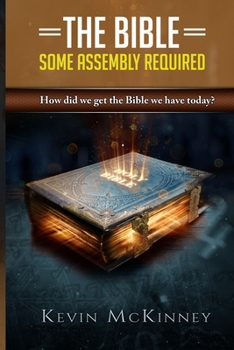The Bible - Some Assembly Required: How did we get the Bible we have today?
The Bible is the inspired word of God, but is the Bible we read today the same Bible our ancestors read? For centuries there were meetings of church leaders to discuss and hash out the contents of the Bible. These included many arguments, disagreements and controversies before the proper Books of the Bible could be decided upon.
Questions and curiosities about the Bible are not limited to the non-believer. Saint Paul in 1 Thessalonians tells us we should not take things at face value."...examine everything; hold firmly to that which is good." (1 Thessalonians 5:21) - Don't be afraid to ask questions, to seek the truth. When and how were the books that make up the modern Bible decided upon? Why are there multiple translations of the Bible? Why do some Bibles have 66 books while others have 73 and still others 80 books? Who were the people involved? Which were the most important ancient manuscripts? Do the Dead Sea Scrolls contradict or confirm the Bible? How do the ancient manuscripts found in the Nag Hammadi Library fit into Bible History? and why were the Apocrypha Books excluded from the Bible? Persecuted and outlawed, the early Christians fought to follow their faith and put together a canon of selected scripture which has lasted nearly twenty centuries. Answers can be difficult, but there are many sources of information available from ancient times and some of the most reliable historians of antiquity. A vast number of ancient manuscripts exist to help confirm what we have today is the Bible the early church leaders intended. The Bible is the greatest story ever told, but there was some assembly required.Format:Paperback
Language:English
ISBN:B099C8QCQ1
ISBN13:9798537489986
Release Date:July 2021
Publisher:Independently Published
Length:186 Pages
Weight:0.56 lbs.
Dimensions:0.4" x 6.0" x 9.0"
Customer Reviews
0 rating





